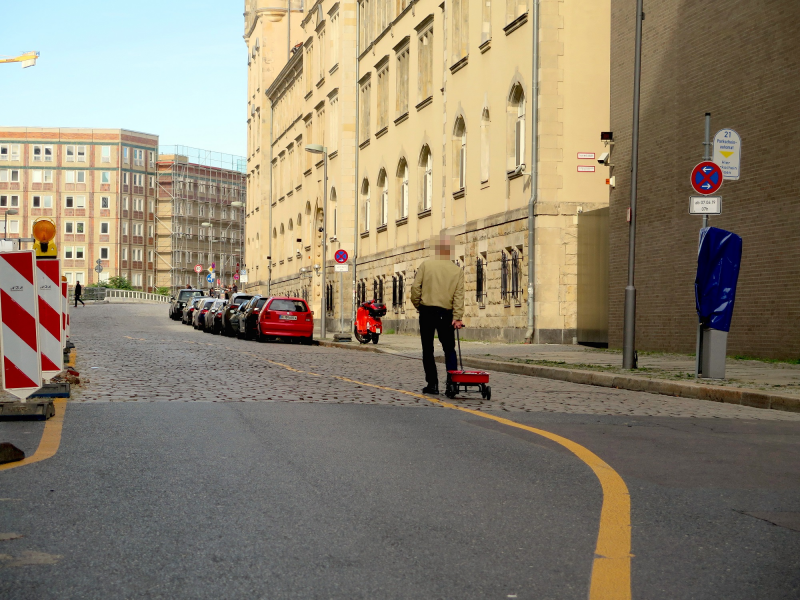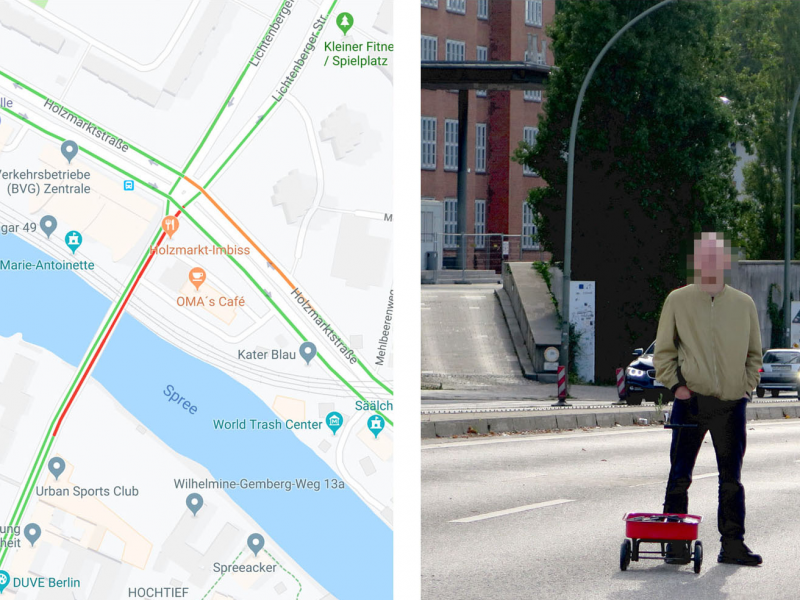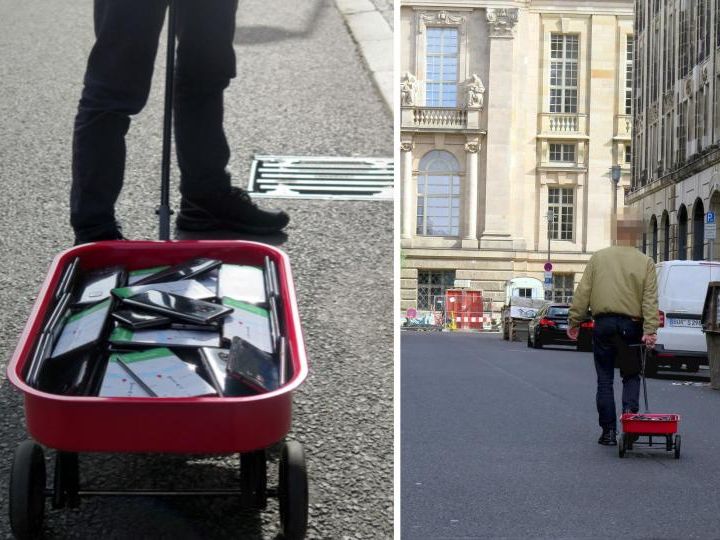- An artist pulled 99 smartphones around Berlin in a red wagon, tracking how the gadgets affected Google Maps’ traffic interface.
- Wherever the phones went, Google Maps showed a traffic jam, displaying a red line and routing users around the area.
- Google Maps predicts the density of cars in an area by pinging smartphones that use the app.
- Visit Business Insider’s homepage for more stories.
An artist “hacked” Google Maps’ traffic display – and all it took was a red wagon and 99 smartphones.
Simon Weckert toted the pile of smartphones down empty streets in Berlin. Every street he traversed suddenly appeared as a traffic-heavy red zone on Google Maps, rerouting drivers to avoid the streets, as shown in Weckert’s YouTube video documenting the results.
Weckert essentially gamed the mechanism Google Maps uses to predict traffic, he said in an email to Business Insider.
A Google representative told Business Insider that the app determines traffic by continuously pinging smartphones that use location services and by using “contributions from the Google Maps community.”
"We've launched the ability to distinguish between cars and motorcycles in several countries including India, Indonesia and Egypt, though we haven't quite cracked traveling by wagon," the representative said. "We appreciate seeing creative uses of Google Maps like this as it helps us make maps work better over time."
For Weckert's experiment, all 99 smartphones were turned on with Google Maps running.

"There is no such thing as neutral data. Data is always collected for a specific purpose, by a combination of people, technology, money, commerce, and government," Weckert said in an email to Business Insider.

Weckert said he carried out the experiment last summer but published the results this week in honor of the 15th birthday of Google Maps.

Weckert added that he wanted to draw attention to the blind trust that many people have in tech companies and platforms.

"Maps have the potential as an instrument of power for some intentions. They substitute political and military power," Weckert said. He added that "we are highly focused on" the data of apps like Google Maps "and tend to see them as objective ... thus data are viewed as the world itself, forgetting that the numbers are only representing a model of the world."

